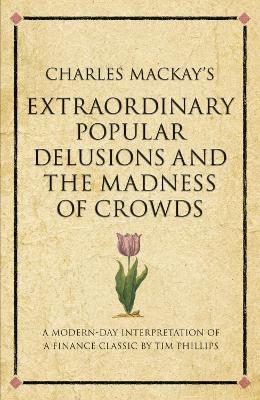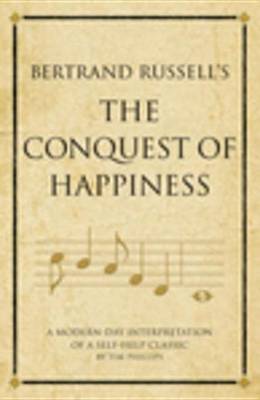Infinite Success
3 total works
Charles Mackay's Extraordinary Popular Delusions and the Madness of Crowds
by Tim Phillips
Published 31 January 2009
First published in 1841, Charles Mackay's Extraordinary Popular Delusions and the Madness of Crowds, with its vivid descriptions of celebrated financial manias ('bubbles'), is often cited as the most powerful book ever written about market psychology. Mackay chronicles many celebrated bubbles to demonstrate his assertion that "every age has its peculiar folly; some scheme, project, or fantasy into which it plunges, spurred on by the love of gain, the necessity of excitement, or the mere force of imitation." Nobody can doubt that this still holds fast in the twenty-first century. Among the bubbles described by Mackay is the infamous Dutch tulip mania, the South Sea Company bubble and the Mississippi Company bubble. And what do bubbles do? Why they burst of course. Tim Phillips' brilliant interpretation of Mackay's pioneering book illustrates the enduring nature of crowd behaviour with twenty-first century examples. Inside this entertaining book you'll discover:
* The merits of differentiation versus imitation;
* What 'groupthink' means, and how to avoid it;
* The importance of following your own ideas and straying from 'the pack'.
The 'burst bubbles' Mackay described 170 years ago, and the the mass speculation and greed that fuels them, are with us as much today as they were then.
This book is not a substitute for Mackay's original. Its purpose is simply to illustrate the timeless nature of Mackay's insights by bringing them to life with modern market and political examples. Phillips' interpretation of Mackay's book is an inspiring update of a pioneering work of market psychology.
* The merits of differentiation versus imitation;
* What 'groupthink' means, and how to avoid it;
* The importance of following your own ideas and straying from 'the pack'.
The 'burst bubbles' Mackay described 170 years ago, and the the mass speculation and greed that fuels them, are with us as much today as they were then.
This book is not a substitute for Mackay's original. Its purpose is simply to illustrate the timeless nature of Mackay's insights by bringing them to life with modern market and political examples. Phillips' interpretation of Mackay's book is an inspiring update of a pioneering work of market psychology.
First published in 1930, The Conquest of Happiness is a guide to living a happy life; a self-help classic written for an era when people were more practical and less self-obsessed than today. It addresses a fundamental question - how can we be happy? - not by asking readers to overthink the problem, make endless lists or dig deep into their subconscious, but by suggesting useful and manageable things that can be done to improve their daily lives. Both of and ahead of his time, Russell showed that true happiness could only be achieved through thought and effort.
Bertrand Russell's The Conquest of Happiness illustrates the timeless nature of Russell's insights by bringing them to life with modern examples and case studies. Tim Phillips' superb interpretation of The Conquest of Happiness is an entertaining accompaniment to one of the most important works of popular philosophy ever written. Twenty-first century readers will discover:
* How to achieve happiness even if you're not the richest, cleverest or prettiest;
* Why being true to yourself is the first step to happiness;
* That viewing life as a competition is a good way to make yourself unhappy;
* How to use your unconscious mind to solve your problems;
* Why alcohol is not the answer (but guilt-free sex could be).
Anyone who feels that true joy is beyond their grasp can free their mind and let this book show just how easy finding happiness can be.
Bertrand Russell's The Conquest of Happiness is not a substitute for the original. Its purpose is simply to illustrate the timeless nature of Russell's insights into human nature by bringing them to life in a contemporary context. Tim Phillips' brilliant interpretation of The Conquest of Happiness is an entertaining and highly practical reworking of one of the most influential popular philosophy books ever written.
Bertrand Russell's The Conquest of Happiness illustrates the timeless nature of Russell's insights by bringing them to life with modern examples and case studies. Tim Phillips' superb interpretation of The Conquest of Happiness is an entertaining accompaniment to one of the most important works of popular philosophy ever written. Twenty-first century readers will discover:
* How to achieve happiness even if you're not the richest, cleverest or prettiest;
* Why being true to yourself is the first step to happiness;
* That viewing life as a competition is a good way to make yourself unhappy;
* How to use your unconscious mind to solve your problems;
* Why alcohol is not the answer (but guilt-free sex could be).
Anyone who feels that true joy is beyond their grasp can free their mind and let this book show just how easy finding happiness can be.
Bertrand Russell's The Conquest of Happiness is not a substitute for the original. Its purpose is simply to illustrate the timeless nature of Russell's insights into human nature by bringing them to life in a contemporary context. Tim Phillips' brilliant interpretation of The Conquest of Happiness is an entertaining and highly practical reworking of one of the most influential popular philosophy books ever written.
Machiavelli based The Prince on his profound understanding of human nature. This short treatise on Renaissance statecraft and power has been controversial and inspiring since its first publication 500 years ago. Machiavelli's analysis of the ways men seize, retain, and lose power was the first analysis of realpolitik and has been used ever since as a handbook for manipulating events to one's own advantage. In Niccolo Machiavelli's The Prince Tim Phillips interprets Machiavelli's incisive work for today's business world. Twenty-first century readers will discover:
* Why you'll lose power unless you use it;
* How to to set tough targets for yourself;
* Why you should befriend your enemy's enemy;
* Ways to send messages through your actions, not your words;
* Why nothing fails like success.
Niccolo Machiavelli's The Prince is not a substitute for the original. Its purpose is simply to analyse the timeless nature of Machiavelli's insights and bring them to life with modern business and political examples. This brilliant interpretation of The Prince, often regarded as the first work of modern philosophy, is an entertaining accompaniment to one of the world's most useful (and notorious) books.
* Why you'll lose power unless you use it;
* How to to set tough targets for yourself;
* Why you should befriend your enemy's enemy;
* Ways to send messages through your actions, not your words;
* Why nothing fails like success.
Niccolo Machiavelli's The Prince is not a substitute for the original. Its purpose is simply to analyse the timeless nature of Machiavelli's insights and bring them to life with modern business and political examples. This brilliant interpretation of The Prince, often regarded as the first work of modern philosophy, is an entertaining accompaniment to one of the world's most useful (and notorious) books.


